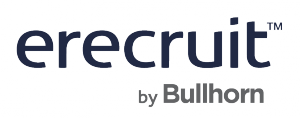SEO Tips for Recruitment Agencies
 One of the biggest problems for recruiters is standing out from the competition online and ensuring that job advertisements attract the best talent.
One of the biggest problems for recruiters is standing out from the competition online and ensuring that job advertisements attract the best talent.
In today’s digital-first world, Google is often the first point in a job search. “Jobs in Birmingham”, “Entry level jobs in Bristol”, “part-time jobs in Edinburgh” are all examples of what a candidate might type into Google’s search bar.
So, shouldn’t recruiters start there – with the Google search?
Think about it – as most job searches start with a query typed into Google’s search bar, understanding what keyword terms are being used by candidates and then optimising your job advertisements, content and webpages for those terms would be the most effective way to attract candidates, right?
Of course, pumping money into a Pay-Per-Click programme is one way to achieve the results you desire, but prime Google real estate is competitive and costly. Instead, building a Search Engine Optimisation (SEO) strategy, including specific keywords, is an affordable way to drive traffic to your website and job advertisements.
In this blog, we will discuss the importance of having an ongoing SEO strategy, as well as share some simple and effective SEO tips for recruitment agencies.
Building a keyword strategy
As mentioned previously, you need to consider how people are finding your job advertisements and/or website. What keyword terms are they typing in to arrive there? Are they specific long tail keyword terms or short, but relevant, keyword terms?
Once you have this information, you can build a comprehensive keyword strategy around those terms. Remember, try to be specific, but relevant. Over-specific terms are highly unlikely to be searched for, while generic terms are harder to rank for.
Clearly, there needs to be a balance. When it comes to SEO, build your keyword strategy based around both short and long tail keyword terms and then refine it as you go.
Establish benchmarks
Before you execute your keyword strategy and optimise your content, job advertisements and web pages, you need to set a benchmark for your current SEO performance as this will enable you to continually monitor the performance of your keywords and how much new activity your website is generating.
Managing Onsite SEO
Once you’ve established your keyword strategy and set a benchmark to compare it against, you need to manage your onsite SEO. A comprehensive SEO strategy will consider on-page website elements, such as meta titles and meta descriptions, and optimise content for search. Meta titles for example, should be based on keyword terms and relevant to the copy on the web page in question. Meta descriptions on the other hand, are used on search engine results pages to display a snippet of a particular web page – and should be concise and intriguing, as this will help to improve the click through rate to the page.
Refining your keyword strategy
We’ve covered the basic elements: keywords, meta titles and meta descriptions, identifying new keyword opportunities is the next part of the process.
However, it’s important to appreciate that SEO is by no means a ‘set it and forget it’ strategy. It needs routine maintenance and monitoring to get the best results.
Analytics platforms such as Google Analytics provide you with detailed website analytics, allowing you to determine the search terms people are using to find your website. Then, armed with this information, you can optimise your existing web pages and content to incorporate those terms, as well as create new website pages to target new terms.
Creating new, high-quality content
Even with the above in place, you need to maximise your chances of being found online – and a great way to do this is by creating relevant, high-quality educational content.
Google loves fresh content and will reward those websites that post new, high-quality content. It’s also a great way to drive traffic to your website and encourage candidates and clients to sign up for future content updates, improving your brand’s authority and credibility online.
Ultimately, optimising your website, content and job advertisements for search is advantageous to the success of your recruitment agency online, and should always be a main element in your online strategy. However, SEO is a constant practice; you should monitor your keyword performance on a regular basis and identify new keyword opportunities as this will allow you to get the most out of your content and job advertisements and attract new candidates.

Leave a Reply
Want to join the discussion?Feel free to contribute!